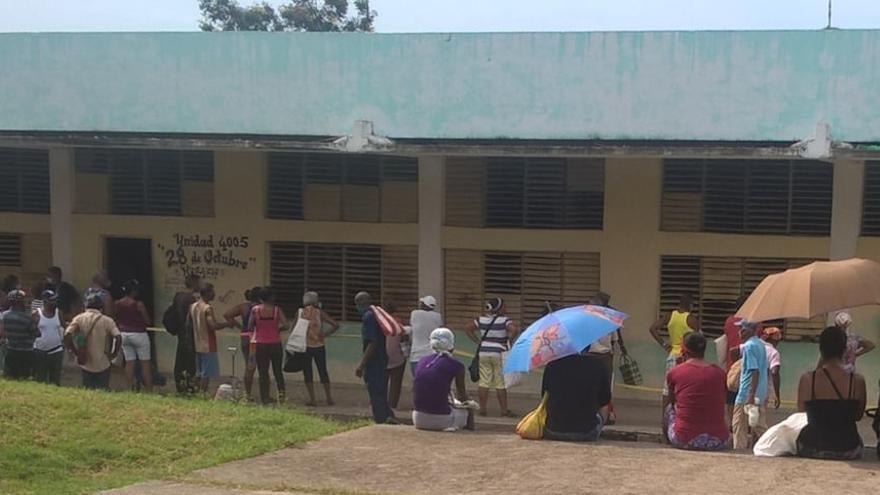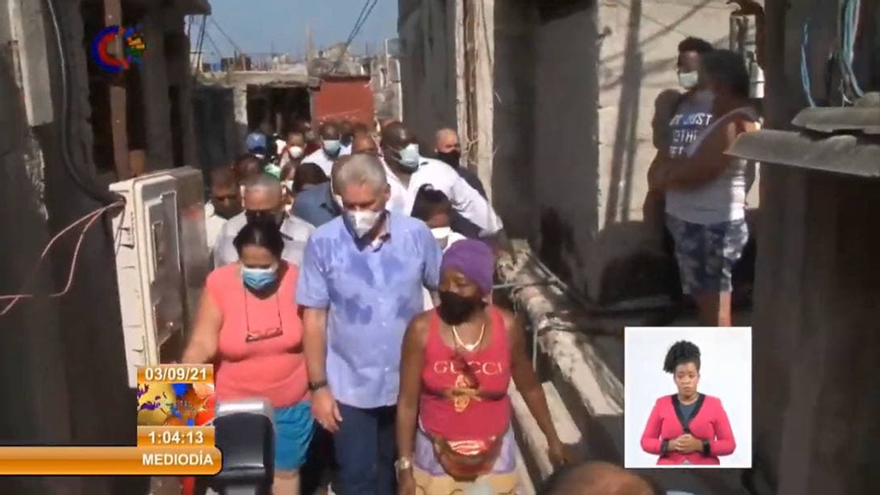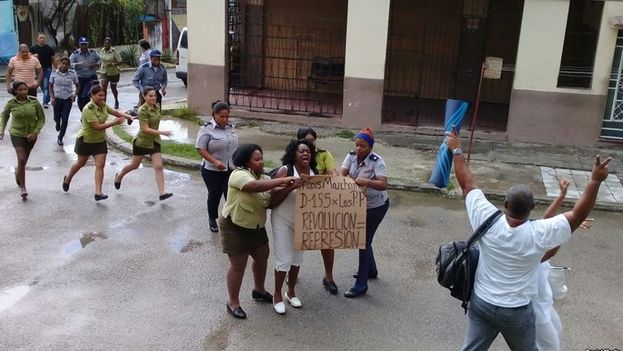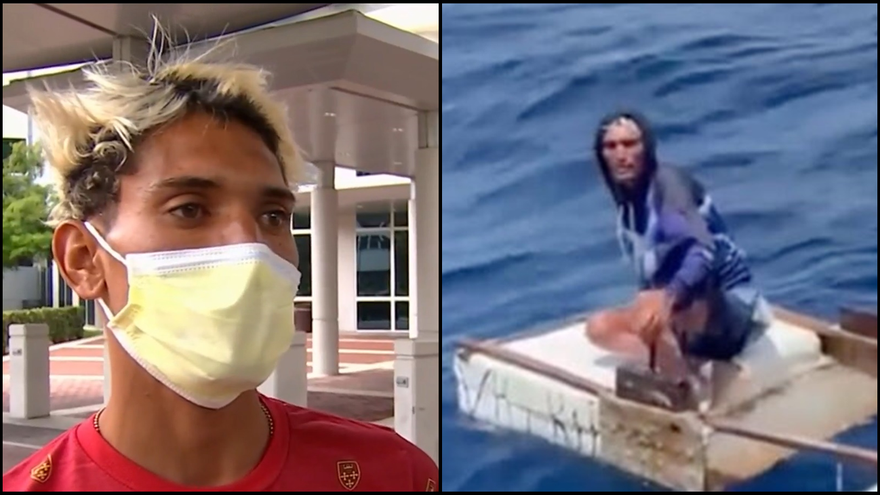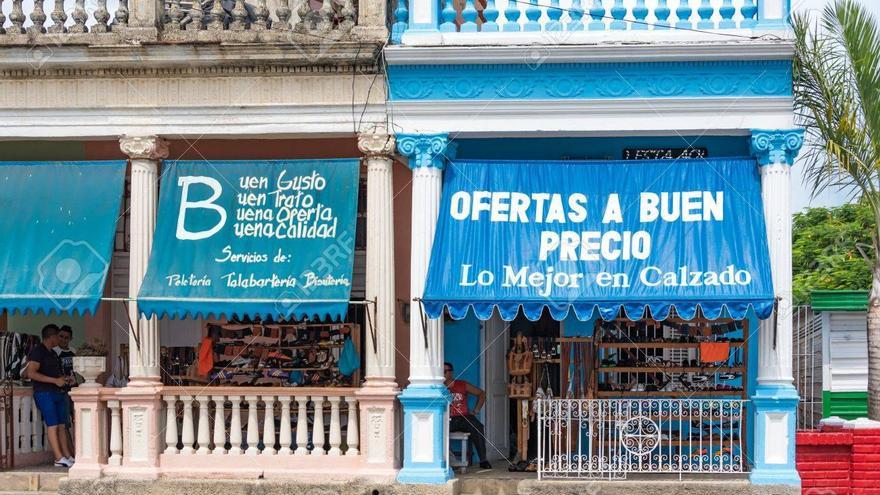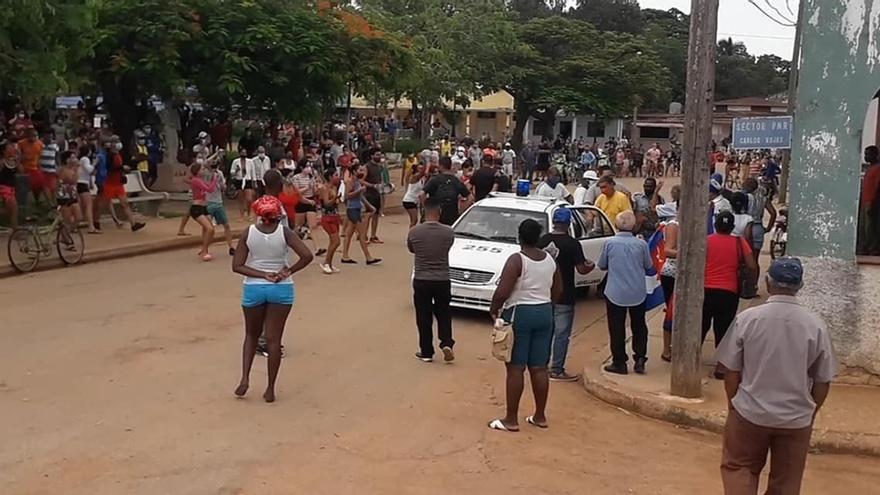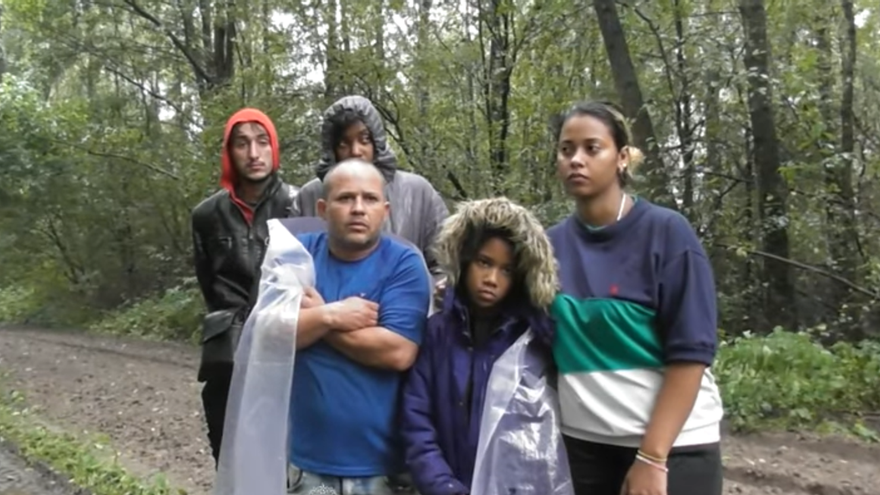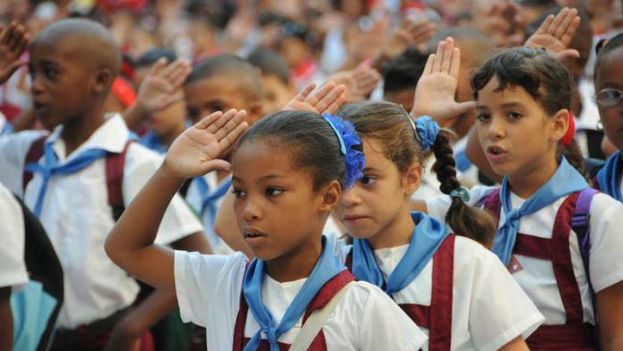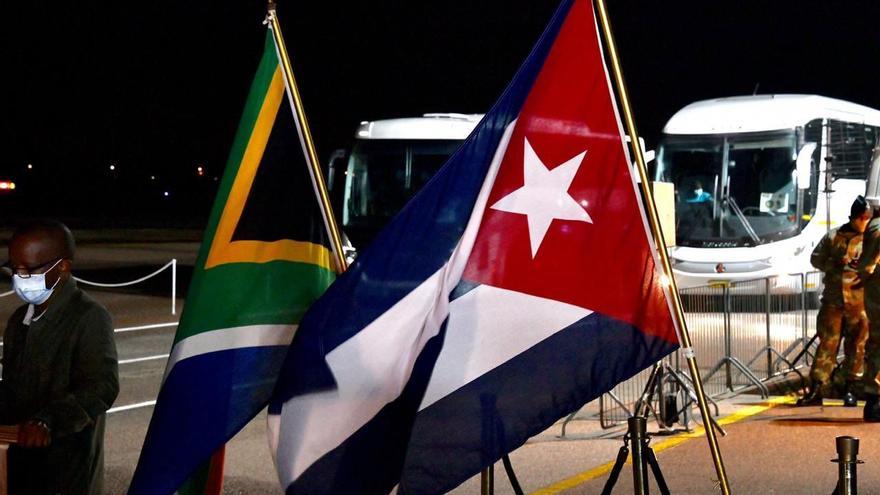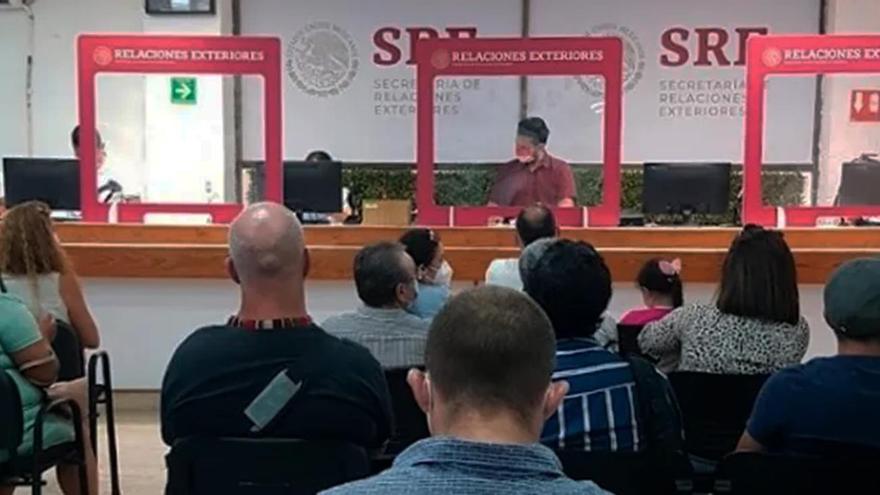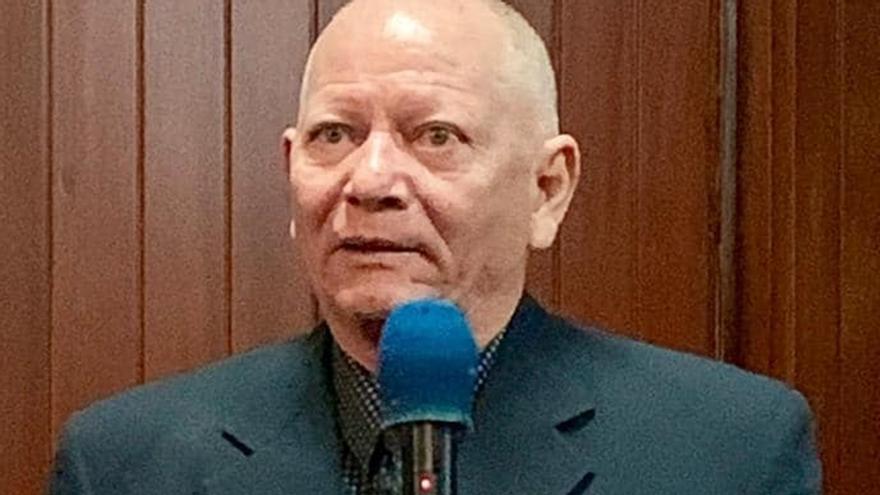The objective seemed to be to clear the doubts and fears of Cubans about national vaccines against covid-19, an issue that worries a population who now wonder how, despite the progress of the immunization campaign, infections are increasing, deaths are not falling, and foreign vaccines have arrived on the island. But the absolute lack of data, and the absence of any mention of Sinopharm, which is already being injected in Cienfuegos, will not help calm the less trusting.
The Roundtable this Monday thus became an exercise in faith, since none of the graphs showed the segment they were referring to.
Eduardo Martínez Díaz, president of BioCubaFarma, as well as the directors of the Center for Genetic Engineering and Biotechnology (CIGB), Marta Ayala Ávila, and the Finlay Vaccination Institute, Vicente Vérez, wanted to make clear from the beginning of their interventions the difference between efficacy and effectiveness.
The first refers to the results in the trials, which are carried out in healthy and selected people, while the second refers to the real impact, when applied to the general population. Based on this starting point continue reading
, they explained that any vaccine, despite having obtained excellent results in testing, may fail when inoculated in the elderly or people with pre-existing diseases. But the authorities did not offer a single piece of information that would allow us to analyze these variables.
Martínez Díaz recalled that the objective of the vaccine is, above all, to prevent the disease from developing in a serious way since the Delta variant, which spreads at double the speed of the original strain and has a viral load 1,000 times higher, has ruined the plans of many countries to return to normalcy as soon as possible.
“In clinical studies, many of the vaccines, including Cuban vaccines, showed efficacy rates of 100% or close for avoiding death, for lessening severity; a lower percentage (92.8% in Abdala and 91.2% in Soberana) of avoiding the disease, and a little lower to avoid transmission,” said the president of BioCubaFarma, who recalled that all were developed for less harmful strains and have had to review their data after Delta arrived. “Pfizer has reported that its effectiveness has been reduced by 39% in relation to infection, for example,” said Martínez, without revealing, once again, the data of the national vaccines.
“What happened at the beginning of July? The more contagious delta variant began to circulate in Havana, and the number of cases increased. Unvaccinated people began to get sick and, to a lesser extent, the vaccinated,” said the president of BioCubaFarma. How many in each case? That he didn’t say.
Those present wanted to highlight the decrease in lethality and infections in Havana, particularly in the four municipalities that began vaccination first, but they hardly gave their word as a guarantee. The comparative graph of the Island with Havana indicates the improvement of the capital, as well as the other line that aggregates without differentiating the four pioneers — Regla, La Habana del Este, Guanabacoa, and San Miguel del Padrón.
A brief analysis of the few official data available in this regard shows a mixed result. The page on which these figures have been turned for months allows us to compare the contagions of covid-19 by Havana municipalities. Any of the first four to initiate immunization has, indeed, much fewer infections than Diez de Octubre, one of the last two. But all of them show figures similar to those of the other bottom municipality, Marianao. Although there are more variables, including sociodemographic ones, that could influence this, they are unknown.
In any case, Cubans have almost completely stopped trusting official data. The shortage of PCR tests and the delays that backup their processing complicate having an estimate of the sick and even the deceased, as revealed by the Minister of Health, José Ángel Portal Miranda, to Invasor, the provincial newspaper of Ciego de Ávila, two weeks ago.
Beyond the capital, where despite having a huge number of people vaccinated with the full cycle there is still no public data (“we’ve only had eight weeks to measure effectiveness,” said Martínez Díaz by way of apology). The official also stressed that it is being studied in Matanzas and in other municipalities where time has passed after vaccination and “the results are positive.” But he didn’t give a number.
About Abdala, Ayala said that more than five million people have received one dose, four and a half million the second dose and more than three and a half million the third: a total of 13.6 million vaccines administered. “Neutralization is more intense with the Alpha and Beta variant, and with the Delta there is even an important level of neutralization, although that is where it is reduced, an issue that has also been reported for most of the vaccines that are approved worldwide” said the director of the GIGB without enlightening the public with any figures.
The vaccine, however, scored somewhat this Monday, when it received the favorable technical opinion of the Federal Commission for the Protection against Sanitary Risks (Cofepris) of Mexico. The experts were in favor of giving Abdala authorization for emergency use, a step prior to reviewing the data by expert personnel from the Sanitary Authorization Commission (CAS).
The Roundtable also spoke of the Mambisa — an intranasal needle-free vaccine — the forgotten candidate which, according to the official, shows “encouraging results.” And in this case there was a figure, 78.8% of those vaccinated in phase I had an immune response.
There were also more details about the study carried out on inoculating minors with Sovereign. If the data offered by Vicente Vérez, from the IFV, are true, the efficacy prospects are better than in adults. In adolescents aged 12 to 18 years, almost 93% responded adequately with two doses of Sovereign 02 and only 7% remained below the required levels. As for children from 3 to 11 years old, less than 1% did not respond, “and that is very good news,” said Vérez Bencomo.
The director of the IFV had more in his hand than anyone else to talk about the inoculation in Cienfuegos with the Chinese vaccine, Sinopharm, which has aroused not a little skepticism both among those who believe that it shows the scarce effectiveness of the Cuban vaccine and among those who think that if it is was going to “renounce, even in part, sovereignty” it could have been done earlier to buy time. However, Vérez made an exit in this regard and it occurred to him, on the contrary, to relate Soberana Plus with others, adding more amazement to the matter.
“Soberana Plus was designed as a booster for vaccination with Soberana 02 and it is planned to use it as a booster of other existing vaccines, such as Sputnik and AstraZeneca, in some international studies that are being done. The sites with which we are collaborating are interested in the ability of Soberana Plus to strengthen immunity, taking into account that it is very safe,” he said.
As for the international recognition of vaccines, and beyond the positive news for Abdala, things are going slowly. Vérez Bencomo said that on August 30, the phase I study in convalescents for Soberana 02 was accepted in one of the Lancet family journals (The Lancet Regional Health-Americas), while Martínez Díaz recalled that Cecmed, as a regulatory authority, is the entity that authorizes or not the emergency use, and not the World Health Organization (WHO), whose mission is to recognize vaccines.
“Soon we want to have a virtual meeting with the WHO representation to show the results and start talking about the recognition process and make our results transparent with them,” he said.
If the authorities have these positive data, perhaps the WHO can see what Cubans still do not know.
Translated by Tomas A.
____________
COLLABORATE WITH OUR WORK: The 14ymedio team is committed to practicing serious journalism that reflects Cuba’s reality in all its depth. Thank you for joining us on this long journey. We invite you to continue supporting us by becoming a member of 14ymedio now. Together we can continue transforming journalism in Cuba.
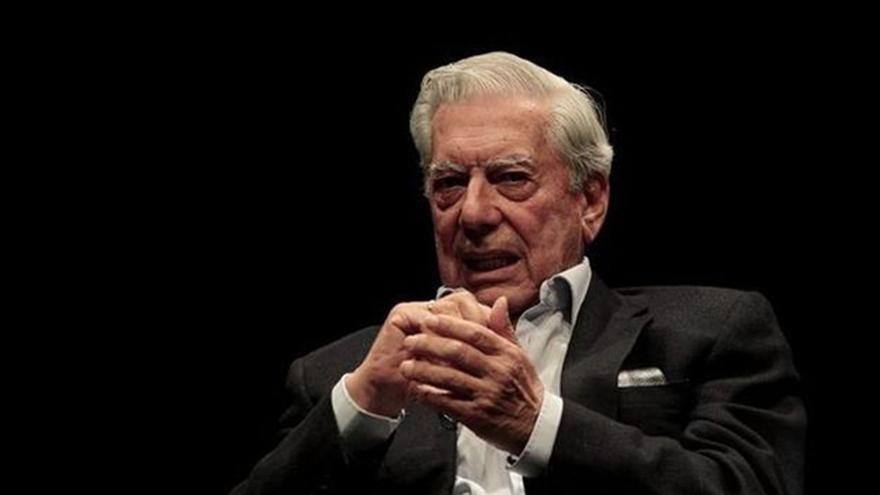
![]() 14ymedio, Havana | 2 Septiembre 2021 — The writer Mario Vargas Llosa on Wednesday added his signature to a petition on Charge.org for the freedom of Cubans, particularly those detained after the massive protests on July 11.
14ymedio, Havana | 2 Septiembre 2021 — The writer Mario Vargas Llosa on Wednesday added his signature to a petition on Charge.org for the freedom of Cubans, particularly those detained after the massive protests on July 11.

